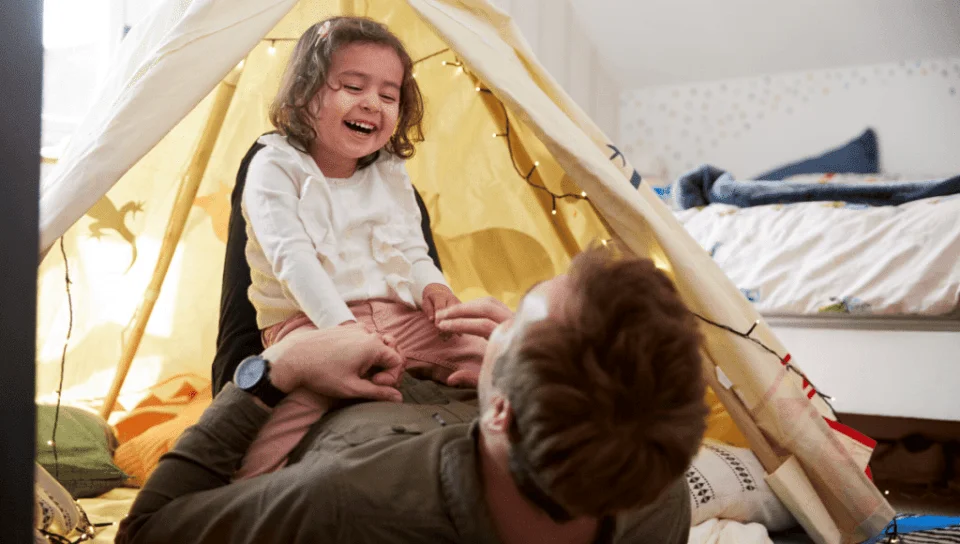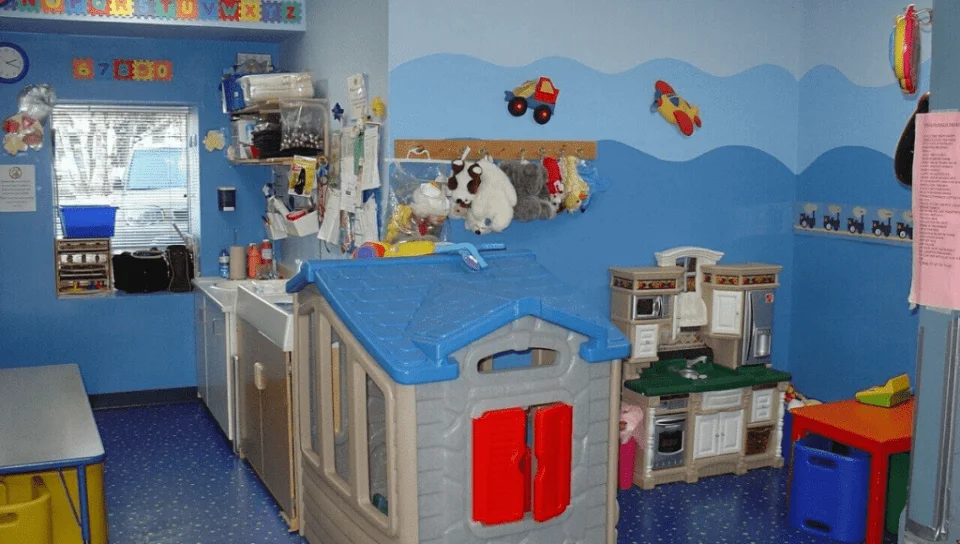7 things you can start doing today to make parenting more fun and worry free

Be consistent, firm, and loving;
7 things you can start doing today to make parenting more fun and worry-free highlight some daily parenting strategies that can significantly influence compliance in children.
Children, especially in the preschool years, find it quite challenging to follow directions. This is especially true for those deficient in language as they often struggle to express their feelings. However, understanding the reasons behind their non-compliance is the first step to helping them develop in the said domain.
I have found that younger kids struggle with transitioning from one activity to the other. If you’ve ever tried to get kids to leave the playground, then you know the pain that involves the transition process.
In challenging moments like these, we are typically left with two options: become irate or exercise patience, and the latter always yields the most effective outcomes.
For example, say you become irate and start to yell at your child; you would either get a child who fights, which might infuriate you further. or a child who is afraid of your threats, consequently submitting in fear. Neither outcome is healthy or promotes healthy development, even though you may have gotten temporary compliance. Therefore, parents must remain conscious of the long-term effects of this parenting approach that cause fear, low self-esteem, emotional dysregulation, and a disconnect between you and your child.
Conversely, a more practical approach would be to shift your child’s attention to something they love or enjoy. So, knowing what your child loves can come in handy in situations like these. For example, What is that one thing that gets your child excited? It is essential to note that this strategy may not magically result in smooth compliance. However, it is likely to significantly increase the likelihood of a peaceful transition from the playground to the car.
For example, my younger daughter loves lollipops, so I buy organic lollipops and store them in my car for moments like this. However, candy may not be an ideal option, but it should be okay if it isn’t used to gain compliance in every circumstance.
The conversation goes something like this: first, I announce to my child that it is almost time to go. Then, it goes like this, “Sweetie, we have ten more minutes then we have to go,” Don’t wait until the ten minutes elapse. five minutes later, announce, “five more minutes,” then, three more minutes.” Of course, nine times out of ten, you are met with pushback. However, it’s always a better outcome compared to announcing you are leaving without any warning. Moreover, the key to a successful transition is how you handle the final minute.
This is how I handle the final minute. I walk up to my child, and I say to her, sweetie, I know you want to stay longer, but “our time is up now, and we have to go. And the great news is that we will be back soon.
Not many kids are happy or respond with Okay, Mommy. In fact, there are very few to no cases of kids calmly complying to transition in such circumstances. Therefore, using the favorite thing technique could help reduce the level of tantrums in this process.
When it’s time to leave, I’ll say to my daughter, would you like to walk with me to the car and get your favorite candy? Hearing the word “Candy” instantly shifts her mood from the sadness of leaving the playground to the joy of getting her favorite thing, “candy,” this works almost every time.
Note that this strategy would favor preschoolers more and may or may not work for your child, depending on their developmental level.
Engage your inner childlike creativity and playfulness;
We have all heard the saying that “parenting does not come with a manual,” This could not be further from the truth. However, we now know from myriads of research that parents who commit to learning the basics of child development have shown to be more responsive to the needs of their children.
Conversely, studies have shown that parents who do not know the basics of child development are more likely to be a reactive parent. Thus making child-rearing more challenging. Moreover, it is impossible to solve a problem we do not quite understand.
Take the case of this mother who came to me for help. She said, and I quote, “I can’t stop beating my 16-month-old son because he does not listen, cries for no reason, and just won’t stop. And, she continued, I just want him to stop. But, If I’m not tough on him, he may become unruly.”
I was stunned but mostly terrified for the child. Every single “concern” she mentioned was developmentally appropriate for a 16-month-old toddler. This begs the critical need for every parent/caregiver to be educated with the basics of child development to adequately meet the needs of their children, especially at this crucial stage in early development.
Understanding the basics of child development also helps lessen parental stress and thus serves as a parenting guide. For instance, If the lady I mentioned above understood that her precious son was doing exactly what he was supposed to be doing developmentally, she would’ve been better suited to meet his needs without feeling like she was a failure as a mother.
Moreover, understanding that every child is unique can help parent reconsider their parenting approach and focus on their child’s individual needs, consequently reducing parental stress and frustration.
Another practical approach is to embrace your weird and creative self. Children do not see the world the way you do; therefore, to get them to see things your way, you must be willing to get down to their level, literally.
For example, are your kids constantly asking you to play with them, and you probably respond with, “I’m busy?” And I know it can be overwhelming trying to juggle everything, especially the single parents. However, one of the most effective parenting tools is “time-in,” not “time-out.”
Please take this one tool with you if you take nothing else from this article. No matter how busy you are, give your child at least 10-15 minutes of your undivided attention doing an activity they want, not what you want.
If you have more kids, it’s crucial to have this one-on-one with all your kids. It may not be every day, but do what you can to make your kids feel seen, heard, loved, understood, and supported.
There is no one-size-fits-all to raising kids. Preferably, try different approaches to see what best suits your child’s personality because what works for A may not apply to B. Therefore, trying other healthy and safe techniques could help discover the best approach to dealing with your unique child.
Sibling rivalry
Sibling rivalry is quite normal and often born from the curiosity to know that they are significant and hold an important place in the family. Moreover, this is a prime example of how children use each other to seek their parental attention. For instance, my girls will fight so hard for each other but also fight so dirty and say nasty things to each other, like “I hate you.”
Here’s a funny story. One day, I dared to take both of my kids to the shopping mall, and this happened. I will never forget the utter shock I experienced and the face of this lady who happened to overhear my daughter’s say to me. She is only six years old at the time, and her sister is two; she says, “We need to send this baby back to baby land.” Baby land! I repeated the lady’s smile, and I nervously smiled back.
I thought it was funny, but it was also a teachable moment. So, I responded with, I understand that your sister annoys you sometimes, but you love her, and our lives or family would not be the same without either one of you.
The key lesson was reassuring her that Mommy loved her as much as her baby sister. However, she felt left out because her baby sister was getting more attention than her.
Note: The best technique to reduce sibling rivalry is again using the time-in with your kids. Having a frequent one-on-one will communicate your love and support for your children. And most importantly, they wouldn’t have to fight each other to get your attention because they already have it.
It’s ok to explode, but don’t get to a breaking point
If you are a parent, you know that we all have that one thing that our kids do that takes us into the red zone. Yes, we all have our moments, and I dare to say even the most patient and even-tempered parent has once or twice had a moment of an outburst. So there is no shame in admitting that you are overwhelmed and perhaps need me time to practice self-care, meditation, or whatever helps bring you back to base.
This is why the science behind self-care denotes the significance of ensuring one’s well-being before attempting to be of service to others. Remember, when the airplane loses oxygen, you are required to secure your oxygen mask before trying to help anyone, including your children. Therefore, suggesting that if our well-being is threatened, we ought first to ensure we take care of the self before offering the self to others.
Therefore, make time to fulfill your needs before you get to a breaking point. Try these strategies to help calm your nerves and reduce some of the stress. Talk to God, call a friend, meditate, do yoga, exercise, take a walk in nature, listen to music, cook your favorite meal, have a drink, dine out, binge-watch your favorite show, just take a few deep breaths, or cry it out if you find this relieving, just don’t do it in front of the children.
Teach your kids how to self-entertain with Screen-free toys:
It is absolutely critical that parents take a break from childminding. If you want to enjoy some calm, you must teach your kids how to self-entertain. Moreover, you will be surprised how much kids love to self-entertain. Find age-appropriate and multi-functioning toys because kids lose interest in toys quicker than a ray of light.
There are ways to cut down on how much you spend on toys if finances become an issue. First, consider buying them used from a thrift store or these online platforms: Facebook marketplace, eBay, Amazon, offer, etc. Kids just want toys to play with and, most often, can’t tell the difference between used or new toys.
My daughters love playing with their kitchen and also like building castles with magnets. I found these items on Amazon; as I mentioned above, they also carry used items. In addition, studies have shown that screen-free play is more beneficial in promoting autonomy and problem-solving skills. Thus, a preferred approach to building these developmental skills compared to a sedentary lifestyle of staring at a screen for hours.
Role-play with younger children and listen more with teens
It can be a bit difficult for younger children to express exactly how they are feeling. Hence, their lack of language has been associated with tantrums and problem behaviors. However, role-play has been proven to be an effective way to have children communicate their emotions effectively.
For instance, pretending to be your preschooler’s friend may get them to express themselves much better. This approach is developmentally appropriate for preschoolers and, therefore, not an effective means of communication with teenagers. However, studies have shown that parents who offer a listening ear to their teenagers enjoy better communication and relationships.
Learn to enjoy the ride
Parenting can be challenging but also rewarding. I have learned to cherish the little things, like the hugs from my children for no reason. Or, in the case of my six-year-old daughter, who innocently would profess her unconditional love for me several times a day, “Mommy, I love you.” not because she needed anything. This melts my heart every time and makes the challenging moments all worth it.



